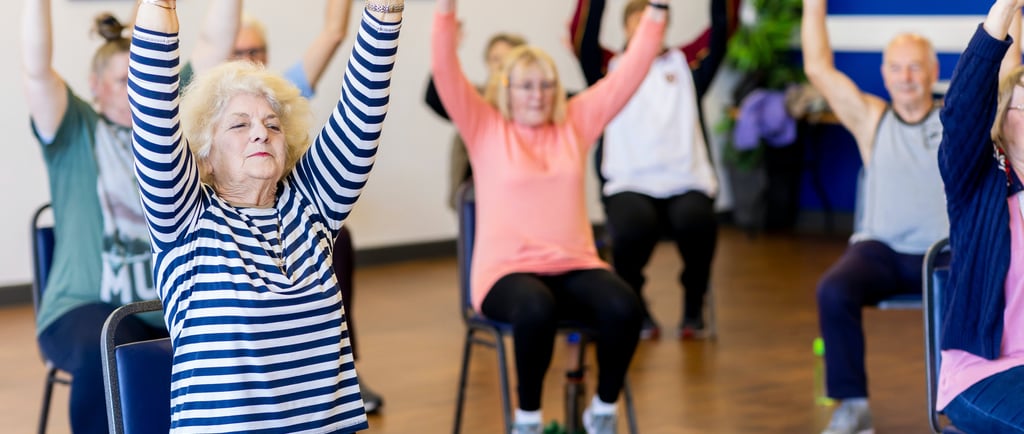Stay Healthy and Active with In-Home Care: Tips for Seniors
This blog post provides valuable tips for seniors who receive in-home care, focusing on how they can maintain their physical and mental health. The article covers easy exercises and healthy meal ideas, as well as tips for staying hydrated, socializing, and managing medications and medical appointments. The post also emphasizes the importance of taking care of one's mental health, particularly for seniors dealing with issues such as loneliness and anxiety. With these tips, seniors can stay healthy, active, and independent while receiving in-home care.
TIPS
Erlyn A. Pinkston
4/20/20234 min read


As we age, it is crucial to prioritize our health and well-being to maintain our independence and quality of life. For seniors who receive in-home care, staying healthy and active can be a challenge, but it is not impossible. In this blog post, we will provide tips on how the elderly can stay healthy and active while receiving in-home care, such as easy exercises and healthy meal ideas.
Exercise regularly
One of the most important things seniors can do to stay healthy is to exercise regularly. Even simple exercises can help improve mobility, flexibility, and strength. Here are some easy exercises seniors can do at home:
Walking: Walking is one of the easiest and most effective forms of exercise for seniors. It can help improve cardiovascular health, increase endurance, and reduce the risk of falls. Seniors can start with short walks around the house or in the backyard and gradually increase the distance as their fitness level improves.
Chair exercises: Chair exercises are great for seniors who have mobility issues or difficulty standing for extended periods. These exercises can be done while sitting in a chair and can help improve flexibility and strength. Some examples of chair exercises include leg lifts, arm curls, and shoulder rolls.
Stretching: Stretching is an essential component of any exercise routine. It can help improve flexibility, reduce stiffness, and prevent injuries. Seniors can start with simple stretches such as shoulder stretches, calf stretches, and hamstring stretches.
Balance exercises: Balance exercises can help reduce the risk of falls, which is a significant concern for seniors. Some examples of balance exercises include standing on one leg, heel-to-toe walk, and side leg raises.
Eat a healthy and balanced diet
Eating a healthy and balanced diet is crucial for seniors to maintain their health and well-being. A balanced diet includes a variety of foods from all food groups, including fruits, vegetables, whole grains, lean protein, and low-fat dairy. Here are some healthy meal ideas for seniors:
Breakfast: Oatmeal with berries and nuts, whole-grain toast with peanut butter, Greek yogurt with granola and fruit.
Lunch: Grilled chicken salad with mixed greens and vegetables, vegetable soup with whole-grain crackers, tuna sandwich on whole-grain bread with mixed greens.
Dinner: Baked salmon with roasted vegetables and quinoa, chicken stir-fry with brown rice and mixed vegetables, vegetable lasagna with a side salad.
Snacks: Fresh fruit, vegetable sticks with hummus, low-fat cheese with whole-grain crackers.
Stay hydrated
Staying hydrated is essential for seniors to maintain their health and well-being. Dehydration can lead to a variety of health problems, including urinary tract infections, constipation, and confusion. Seniors should aim to drink at least 8-10 cups of water a day. If they have difficulty drinking plain water, they can try flavored water, herbal tea, or fruit-infused water.
Stay social
Socializing is essential for seniors to maintain their mental and emotional well-being. Seniors who receive in-home care may feel isolated and lonely, but there are ways to stay social. Some ideas include:
Joining a senior center or community center: Senior centers offer a variety of activities, including exercise classes, crafts, and social events.
Volunteering: Volunteering is a great way to stay active and engaged in the community. Seniors can volunteer at a local school, hospital, or charity organization.
Joining a hobby group: Seniors can join a hobby group, such as a book club, knitting group, or gardening club. These groups offer a great way to meet new people and stay engaged in activities they enjoy.
Take care of mental health
Mental health is just as important as physical health, especially for seniors who may be dealing with issues such as loneliness, grief, and anxiety. Here are some tips for seniors to take care of their mental health:
Practice relaxation techniques: Relaxation techniques such as deep breathing, meditation, and yoga can help reduce stress and promote relaxation.
Seek support: Seniors can seek support from family members, friends, or a mental health professional. Talking to someone can help alleviate feelings of loneliness and anxiety.
Stay engaged in activities: Engaging in activities that they enjoy, such as reading, listening to music, or watching movies, can help seniors feel more positive and engaged.
Take care of spiritual health: For seniors who find comfort in religion or spirituality, taking care of their spiritual health can be an important part of their overall well-being. This could involve attending religious services, meditating, or practicing prayer.
Stay on top of medications and medical appointments
Seniors who receive in-home care may have multiple medications and medical appointments to manage. It is important for seniors to stay on top of their medications and appointments to ensure they receive the care they need. Here are some tips:
Keep a medication schedule: Seniors can use a medication schedule to keep track of their medications and when they need to be taken.
Set reminders: Seniors can set reminders on their phones or use a medication reminder app to help them remember to take their medications.
Keep a medical calendar: Seniors can keep a medical calendar to track their appointments, including doctor appointments, physical therapy appointments, and other medical appointments.
In conclusion, staying healthy and active while receiving in-home care is possible. By exercising regularly, eating a healthy and balanced diet, staying hydrated, staying social, taking care of mental health, and staying on top of medications and medical appointments, seniors can maintain their independence and quality of life. With the right support, seniors can age gracefully and live life to the fullest.


Our Links
Mailing Address
P.O. Box 115 Garden Grove
CA 92842-115
